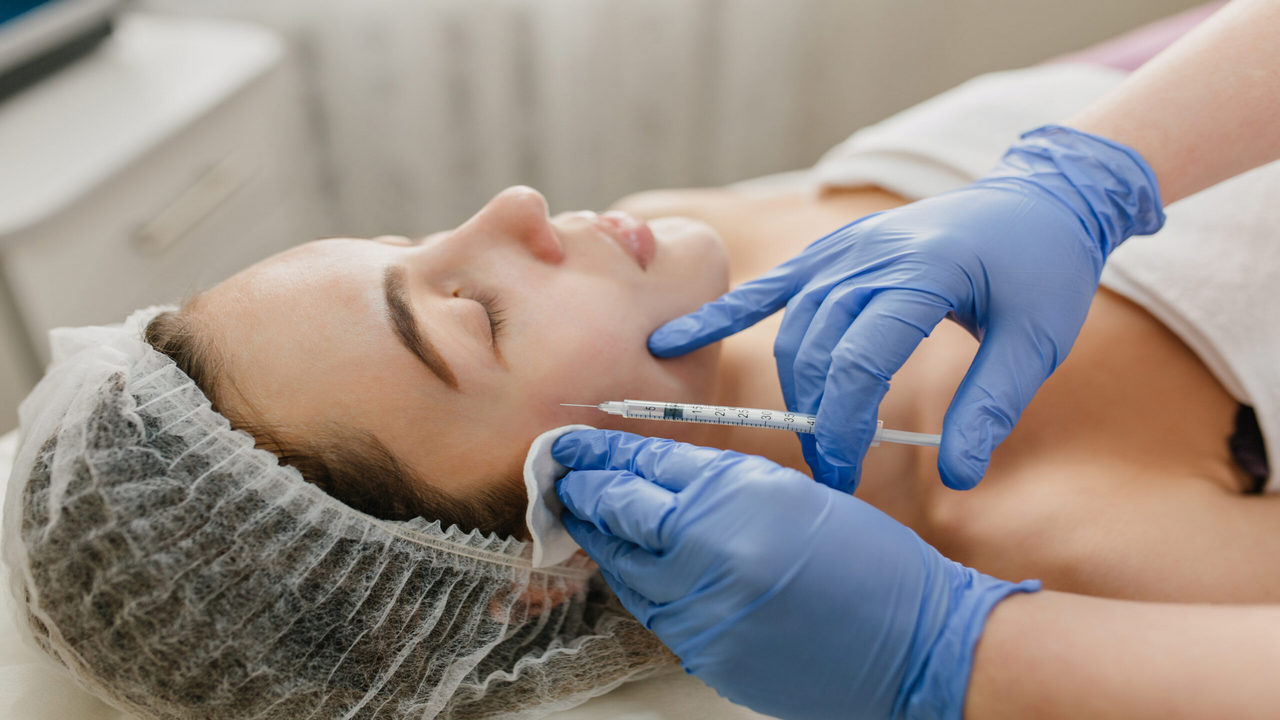What is Botox?
Botox or Botulinum Toxin, is a neurotoxic protein that is administered in minute amounts to cause fine lines and wrinkles to be softened through temporary paralysis of muscles on the face. It is a leading international favorite of non-surgical cosmetic procedures.

Quick History of Botox
It was first designed in the 1970s to cure eye conditions such as strabismus. And only in the early 2000s did this find FDA approval to be used as a cosmetic- and since then, it has been a game-changer in aesthetic medicine.
How Botox Works
It works by disrupting nerve signals that cause the muscles to contract.When the muscles relax, the skin over them becomes smoother. The effects typically last 3 to 6 months.
Common Uses of Botox
Cosmetic Uses
- Smooths wrinkles and fine lines
- Reduces crow’s feet
- Softens frown lines and forehead creases
- Lifts brows and corners of the mouth
- Slims jawlines (masseter Botox)
Medical Uses
It isn’t just about beauty. It’s used to treat:
- Chronic migraines
- Excessive sweating (hyperhidrosis)
- Muscle spasms
- Overactive bladder
- Eye twitching
Who is an Ideal Candidate for Botox?
It can be used by anyone who is above the age of 18 years and has moderate to severe wrinkles or associated muscle conditions. The finest applicants are healthy persons with realistic expectations who are not pregnant or breastfeeding.
The Botox Procedure Explained
Pre-Treatment Consultation
A licensed practitioner will examine your medical history, your skin condition, and your goals. They will tell how it can assist and will respond to any questions.
What Happens During the Injection
The process is fast–less than 20 minutes in most cases. It is put into specific muscles with a fine needle.The pain is minimal and anesthesia is not always necessary.
Post-Treatment Care
- Do not rub the treated part.
- Stay upright for 4 hours
- Skip strenuous activities for 24 hours
- The maximum effects are observed in 5-7 days.
Botox for Anti-Aging
Forehead Lines
Horizontal lines may be caused by repetitive eyebrow movements. It smooths them effectively.
Crow’s Feet
This works well on these smile lines around the eyes making your overall appearance soft.
Frown Lines
These in between the brows can be dramatically reduced using this, also known as 11 lines.
Botox for Medical Conditions
Migraines
It is approved by the FDA in chronic migraines. In grading the frequency of headaches and severity, when injected around the head and neck, it will reduce the occurrence rate and level of severity.
Hyperhidrosis (Excessive Sweating)
It suppresses sweat under the arms and hands and even the face by blocking the nerves that make the sweat glands sweat.
Muscle Spasms & Dystonia
It is useful in the treatment of conditions like cervical dystonia and spasticity that are necessitated by involuntary muscle contraction.
Botox vs Dermal Fillers: What's the Difference?
It paralyses muscles to slow down wrinkles that are created by movement. Dermal fillers on the other hand are aimed at replenishing lost volume and addressing the statical wrinkles.Many use the two to achieve a balanced, youthful appearance.
How Long Does it Last?
It effects usually last 3 to 6 months. Muscles become trained to relax longer with repeated sessions, which prolong the results.
Safety and Side Effects
Generally, it is safe when it is administered by a licensed expert, though, as with every medical intervention, it may have side effects.
Common Side Effects
- Redness or swelling at injection site
- Headache
- Mild bruising
- Temporary drooping (especially eyelids)
Rare but Serious Risks
- Difficulty swallowing or breathing
- Vision problems
- Muscle weakness
Always report side effects to your provider immediately.
Myths and Misconceptions
- Myth: It freezes your face
Fact: When properly done, It will give natural results. You will always remain like you–only more refreshed. - Myth: It is only for women
Fact: This also helps many men, who are commonly known as the Brotox users. - Myth: It is toxic and unsafe
Fact: It is FDA-approved, and its dose is controlled to the lowest level to be safe.
Cost of Botox Injections
The provider: The skills and credibility of the clinic or doctor giving the shots.On average:
- $10 to $20 per unit
- Typical session: 20–60 units
Certain regions such as forehead or crows feet might require a lesser number of units whilst a more is required in regions such as the jaw or underarm.
How to Choose the Right Botox Provider
Check credentials and certifications
Read reviews and testimonials
Inquire about experience and amount of procedures performed.
Request before-and-after photos
Always avoid the lowest price, quality is important!
What to Expect from Your First Appointment
Quick consult and facial assessment
Explanation of treatment zones
Actual injection time: 10–20 minutes
Minimal downtime
You may go back to work immediately, you see-no one has to know, unless you tell them!
Botox Trends in 2025 and Beyond
- Preventative Botox in 20s and 30s
- “Baby Botox” (low-dose injections for subtle results)
- Botox for neck bands and chin dimpling
- Filler and microneedling combination treatments.
Conclusion
It has not only cosmetic advantages, but is a proven treatment with serious medical advantages as well.It is a safe, effective, and convenient way of reversing time or relieving chronic migraines. You can feel more comfortable in your skin as long as you are informed, realistic and in good hands.
FAQs
Mayank Rawat
Certified Skincare Consultant and passionate researcher, I specialize in exploring skincare ingredients and haircare actives. Always eager to stay ahead of trends, I continuously update my knowledge to bring science-backed solutions. Dedicated to helping others achieve healthy skin and hair through expertise and innovation.